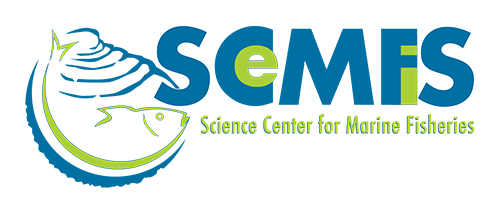BOSTON, MA / ACCESSWIRE / March 15, 2019 / The Science Center for Marine Fisheries (SCeMFiS) brings together industry and academia to conduct groundbreaking fisheries research, and is the only research center funded by the National Science Foundation (NSF) dedicated exclusively to fisheries science. As a result of its research track record, NSF awarded SCeMFiS a "Phase 2" second 5-year grant to continue its work. This funding shows that SCeMFiS met the high expectations of NSF for Phase 2 approval, a feat that not every Phase 1 center accomplishes.

Industry members of SCeMFiS will attend this year's Seafood Expo North America and are available to be interviewed.
Factors that contributed to NSF's determination that SCeMFiS merited a Phase 2 award included:
- Successfully undergoing a vigorous 5-year NSF review that included external reviewers;
- Ongoing solid support from contributing industry member companies and organizations;
- An extremely high retention rate of contributing members;
- The exemplary quality of research conducted by SCeMFiS principal investigators.
With its newly approved grant, SCeMFiS plans to use the next 5 years to focus on ways to reduce scientific uncertainty in fisheries science; the effects of climate change on fish stocks and fishing communities; resolving issues between fishing and offshore energy interests; and developing sound ecosystem-based fisheries management.
Since its founding in 2013, SCeMFiS has been at the forefront of finfish and shellfish research. Working with members of the fishing industry, SCeMFiS scientists have conducted innovative studies, including producing the first age-frequency distributions for ocean quahog, and being one of the only institutions to study species like chub mackerel and longfin squid.
"The work of our academic partners at SCeMFiS has been vital in improving our understanding of the species we harvest," said Jeff Reichle, CEO of Lund's Fisheries, which was one of the original members of the SCeMFiS Industry Advisory Board. "The more we know about these species, the better we're able to harvest them sustainably."
The SCeMFiS industry members attending the Seafood Expo are committed to continuing this scientific partnership. Industry members on the SCeMFiS Industry Advisory Board review, approve, and fund all SCeMFiS projects, which are selected to fill gaps in data and meet the industry's unfilled scientific needs.
"In the last five years, we've been able to study and improve the understanding of some of the most pressing scientific issues facing the fishing industry," said Center Director Dr. Eric Powell, of the University of Southern Mississippi, one of the academic members of SCeMFiS. "We are looking forward to continue our collaborative partnerships and tackle the scientific questions affecting fishermen the most."
SCeMFiS members will be at the following locations at Seafood Expo North America:
Lund's Fisheries: Booth 951
Sea Watch International: Booth 423
The Town Dock: Booth 2133
Seafreeze Ltd.: Booth 2407
Bumble Bee
PRESS CONTACT
Stove Boat Communications
202-844-2502
[email protected]
SCeMFiS industry members will be available for interviews at the Seafood Expo
About SCeMFiS
SCeMFiS utilizes academic and fisheries resources to address urgent scientific problems limiting sustainable fisheries. SCeMFiS develops methods, analytical and survey tools, datasets, and analytical approaches to improve sustainability of fisheries and reduce uncertainty in biomass estimates. SCeMFiS university partners, University of Southern Mississippi (lead institution), and Virginia Institute of Marine Science, College of William and Mary, are the academic sites. Collaborating scientists who provide specific expertise in finfish, shellfish, and marine mammal research, come from a wide range of academic institutions including Old Dominion University, Rutgers University, University of Massachusetts-Dartmouth, University of Maryland, and University of Washington.
The need for the diverse services that SCeMFiS can provide to industry continues to grow, which has prompted a steady increase in the number of fishing industry partners. These services include immediate access to science expertise for stock assessment issues, rapid response to research priorities, and representation on stock assessment working groups. Targeted research leading to improvements in data collection, survey design, analytical tools, assessment models, and other needs to reduce uncertainty in stock status and improve reference point goals.
SOURCE: Science Center for Marine Fisheries




